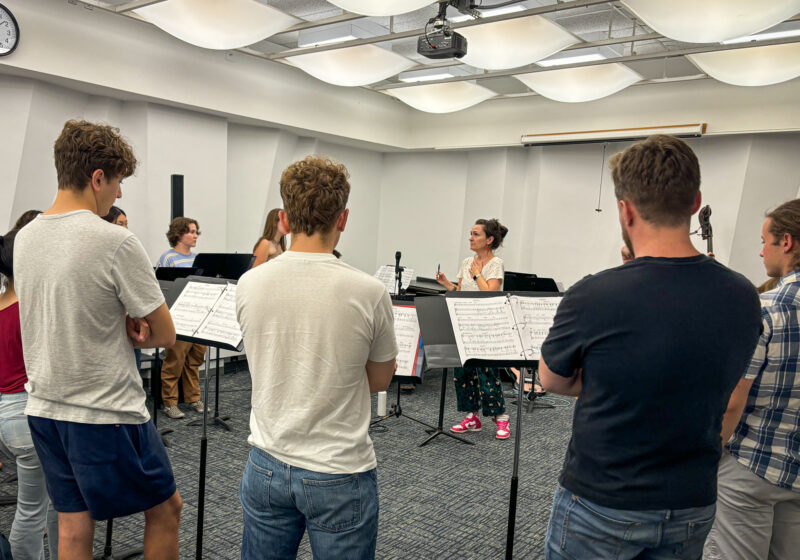UR’s fraternities and sororities ended their biannual rush events last week, completing weeks of recruitment events on and off campus. Flyers posted everywhere from the tunnels to Douglass Dining Center publicized the recruitment events for many chapters belonging to the Panhellenic Association and the Fraternity Presidents’ Council.
There were different incentives for students deciding to pledge this semester.
“There are some girls who weren’t here last year who transferred in,” Panhellenic Association Recruitment Chair and senior Amanda Burns said. “There are also some who chose to go through the process after hearing about it from a friend. It’s much easier when your friends are in and can dispel some of the rumors.”
Sophomore Kyra West did not intend to go through the recruitment process until this semester. “I was initially against the process – I considered it my own little rebellion,” West said. She later decided to rush at Gamma Phi Beta sorority.
Like many other new members, West noted that friendship was one reason in her decision. “My roommate and I ended up pledging together,” West said.
For the fall semester, each of the six National Panhellenic Council sororities represented by the University’s Panhellenic Association has a cap on the number of new members that can be accepted.
“Every chapter has a recruitment quota based on total membership, it’s currently set at fifty members,” Burns said. “For the fall semester, each chapter can take new members up to the total number.”
This number of available spots is often dependent on how many sisters graduated in the previous year’s class. During formal recruitment in the spring semester, each sorority uses a formula calculated by the number of potential new members versus the number of chapters to determine its quota.
Unlike the sororities represented by the Panhellenic Association, the 13 fraternities that are governed by the Fraternity Presidents’ Council do not have a set limit on membership.
Still, the fall season yields fewer new members than in the springtime.
“Most new brothers are recruited in the spring, when freshmen have the opportunity to visit and get a feel for each of the houses,” Fraternity Presidents’ Council Vice President and senior Feliks Kogan said. “Most members who join in the fall already have a good sense of where they want to go.”
There are other advantages to beginning the recruitment process in the fall semester.
“Thirteen people showed up for the rush and we had four bids accepted,” Sigma Chi Fraternity rush chair and senior Ben McKee said. “Overall, it was a very successful season. Rushing in the fall is more exclusive – not as many people rush and the new members get a better sense of the brotherhood because the process is much more intimate.”
Without the large number of new freshmen seeking membership, the process is less intimidating for some students. This was appealing to sophomore Jonathan Herzog, who is beginning the new member process at Delta Upsilon Fraternity.
“It’s not as overwhelming as in the spring,” Herzog said. “There’s less pressure and it’s more down to earth.”
New members may also see the enhanced relationship between their organizations and the University facilitated by the Office of Fraternity and Sorority Affairs.
Last year, the office created the Expectations for Excellence, a set of guidelines for annual planning, goal setting and self-assessment for each of the chapters in the Panhellenic Association, Fraternity Presidents’ Council and the Multicultural Greek Council. Each chapter submitted its plan by the first of March and will submit an annual report on the first of November this year.
The office staff has two graduate assistants who will help to implement the guidelines.
“I’m there to mentor and advise and essentially work as a facilitator between chapter groups and advocates,” Expectations for Excellence Graduate Assistant Katie Stoller said. “I help them reach their goals.”Pomaranski can be reached at apomaranski@campustimes.org.





